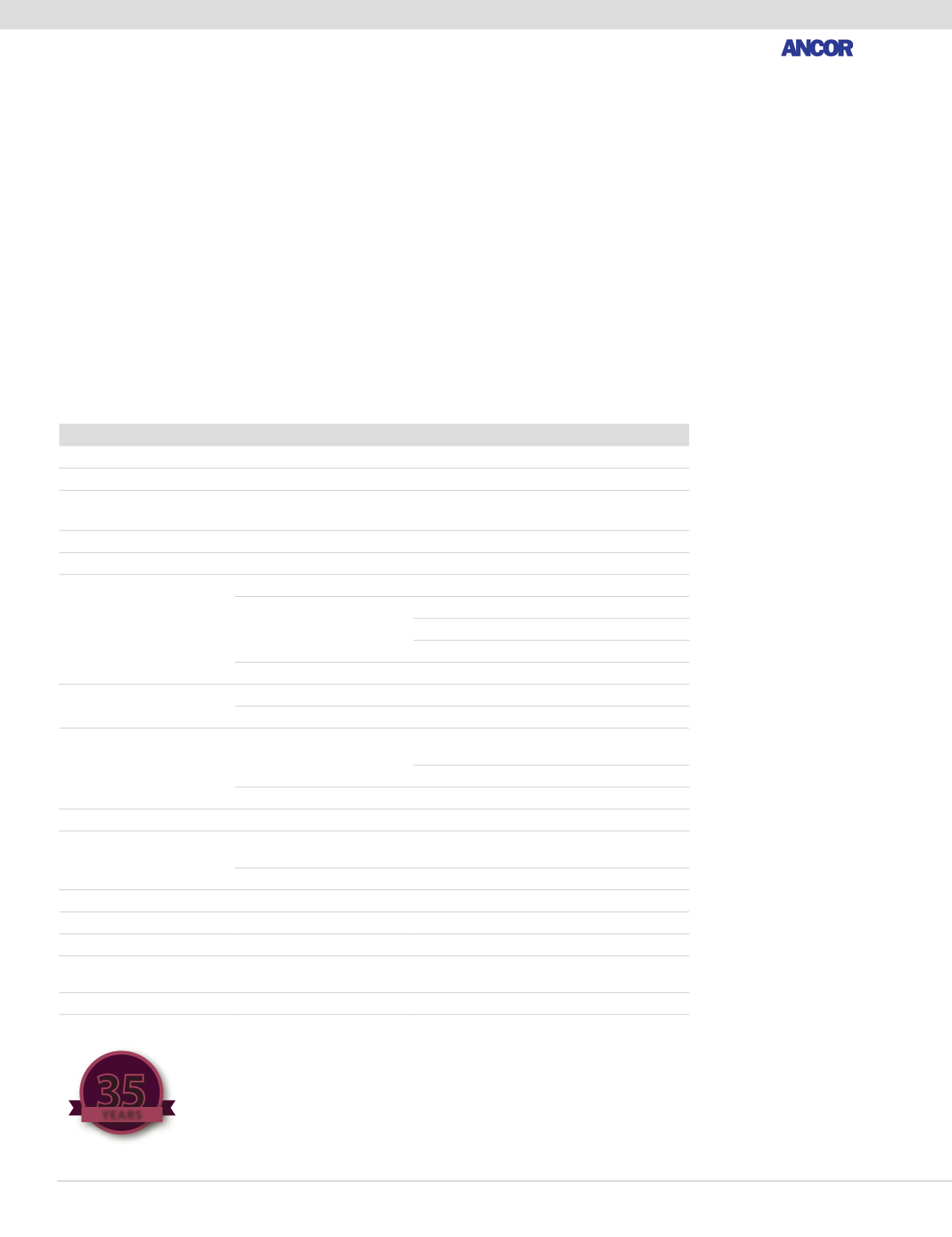

208
toll free 800.307.6702 MASTERVOLT | mastervolt.com MARINCO | marinco.com ANCOR | ancorproducts.com
Table A: Marine Color Code
Color
Item
Use
Red
DC Positive Conductor
Positive Mains
Black or Yellow
DC Negative Conductor
Return, Negative Mains
Green
or Green w/ Yellow Stripe
DC Grounding Conductor
Bonding System
Bonding Wires (if insulated)
Light Blue
Oil Pressure
Oil Pressure Sender to Gauge
Dark Blue
Cabin & Instrument Lights Fuse or Switch to Lights
Brown
Generator Armature
Generator Armature to Regulator
Alternator Charge Light
Generator
Terminal/Alternator
Auxiliary Terminal to Light to Regulator
Pumps
Fuse or Switch to Pumps
Grey
Navigation Lights
Fuse or Switch to Lights
Tachometer
Tachometer Sender to Gauge
Orange
Accessory Feed
Ammeter to Alternator
or Generator Output and Accessory
Fuses or Switches
Common Feed
Distribution Panel to Accessory Switch
Pink
Fuel Gauge
Fuel Gauge Sender to Gauge
Purple
Ignition
Ignition Switch to Coil & Electrical
Instruments
Instrument Feed
Distribution Panel to Electric Instruments
Brown w/ Yellow Stripe
Bilge Blowers
Fuse or Switch to Blower
Yellow w/ Red Stripe
Starting Circuit
Starting Switch to Solenoid
Tan
Water Temperature
Water Temperature Sender to Gauge
Green/Stripe (G/x)
(except G/Y)
Tilt Down and/or Trim In Tilt and/or Trim Circuits
Blue/Stripe (Bl/x)
Tilt Up and/or Trim Out
Tilt and/or Trim Circuits
“Can I use ‘regular wire’ for my boat?”
The answer to this
common question is a qualified “yes,” if the wire is SAE
(Society of Automotive Engineering) J378, J1127 or J1128.
These wires are designed for “surface vehicles,” not for the
special requirements of the marine industry, but meet the
minimum standards for boats in limited circumstances. Even if
tinned copper, they should not be run in bilge spaces or other
areas subject to moisture from spray or dripping. They should
not be run in engines spaces, unless marked “oil resistant”
and “75°C”. They should not be used in applications where
subjected to vibration or frequent flexing and must never be
used for 110 volt applications. For safety, use only wire which
is marked with size and type.
Most importantly, SAE wire is up to 12% smaller than AWG
Boat Cable which means that, in many applications, larger
gauge wire must be used to stay within the voltage drop limits
recommended by experts (see Tables C & D). The wire charts
found in “Chapman’s Piloting” and other publications are all
for “AWG” wire like Ancor™, not “SAE” type wire.
Using the wrong type of wire can cost you more in the long
run. Insist on Marine Grade Boat Cable by Ancor. It is UL
approved for the corrosive marine environment and charter
boat service. Marine Grade Boat Cable is specially designed
to exceed all test standards for cold bend, moisture and oil
resistance, heat shock and flammability. This ensures the
safest, easiest to install, longest lasting and ultimately the
least expensive electrical system you can buy. Only Ancor
offers a complete line of Marine Grade Boat Cable for
every need.
Manage:
Technical Data
35
YEARS
1979 2014
C
E
L
E
B
R
A
T
I
N
G



















